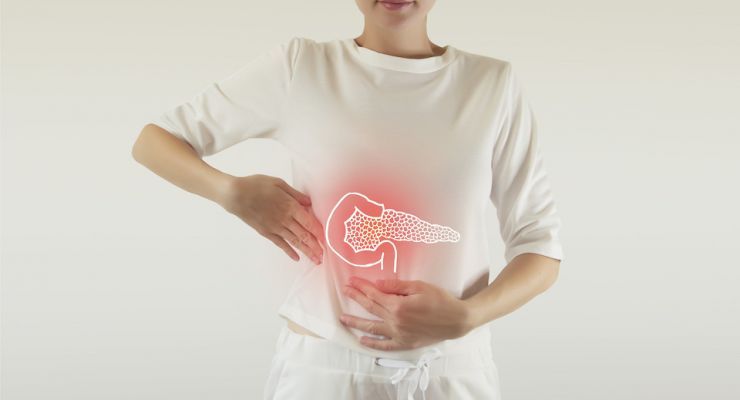Chances are, you rarely think about or hear about your pancreas. Most of the time, you simply go about your daily life, and it does its work with no effort on your part. However, when the pancreas is mistreated and stops functioning correctly…you’ll notice right away. Unlike many other high profile organs such as the heart and lungs, the pancreas is often overlooked and isn’t even considered as the cause of many internal issues. Here are a few ways to give your pancreas some love and why this organ actually matters.
Why is the pancreas important?
Endocrine System
Your endocrine system is a collection of various glands that produce hormones to help regulate metabolism, growth and development, tissue function, sexual function, reproduction, sleep, and mood, among other things. The pancreas is one of these gland organs that contributes to the endocrine system and secrets two hormones that regulate glucose (or blood sugar) in the body.
The first of these hormones is insulin, which is what the pancreas releases when blood glucose levels get too high. On the opposite end of the scale is glucagon, which is what the pancreas secrets when blood glucose levels are too low. This organ is critical to achieving this delicate balance and regulating blood sugar. Balanced blood glucose levels are essential for liver, kidney, and brain health, and it can be disastrous when these levels are out of whack. For instance, type 1 diabetes, which is caused by a combination of genetic and environmental factors, causes permanent damage to the pancreas and makes it unable to produce insulin, leading to a number of severe issues.
Needless to say, the endocrine system is essential, and the pancreas is a starring player. If your pancreas isn’t happy, your entire body, including your nervous system and your cardiovascular system, is affected.
Exocrine System
Not only does your pancreas pay a huge role in your endocrine system with hormone regulation, but it is also crucial for your exocrine system, which secretes substances out of the body in conjunction with the liver and the gallbladder. Essentially, this system breaks down substances and prepares them for digestion or absorption. The pancreas releases many of these enzymes, including lipase to digest fats, amylase to digest carbohydrates, chymotrypsin, and trypsin for digesting proteins.
How to look after your pancreas
Adjust your diet
Greasy, processed, sugary foods aren’t good for any part of your body, but they can be especially damaging to your pancreas. When this hardworking organ is loaded up with too many toxins, it can fall behind and is unable to excrete proper digestive enzymes. Focus on limiting your alcohol intake, cutting out sugar, and eliminating foods with hydrogenated oils. Eat lots of fruits and vegetables and enjoy a moderate amount of lean meat to round out your diet. If you follow a vegan or vegetarian diet, make sure that you are getting proper nutrients. Leafy greens are particularly beneficial for your pancreas so load up on that kale and spinach!
Stop using tobacco products
According to experts, between 20-30% of pancreatic cancer is related to tobacco use. Stop smoking and discontinue any tobacco use to protect your pancreas and your other organs.
Maintain a healthy weight and exercise regularly
Keeping off that dangerous visceral fat and moving your body regularly are other key factors in pancreas health. Exercise for at least 30 minutes per day and try to do activities that increase your heart rate and get your blood pumping.
Drink lots of water
As always, supporting your body means drinking lots of water and staying hydrated. Aim to drink at least half of your body weight in ounces each day or about 6-8 cups of water.
Don’t follow intensive diet plants
Diet plans that promise rapid weight loss or use extreme methods to drop the pounds fast can be exceedingly dangerous. Doctors recommend losing no more than 1-2 pounds per week as a safe guideline. Any more than this can put extra stress on your liver and cause it to accumulate large fat stores.
Get a regular physical
Follow a doctor’s recommendation for physical examinations and general health checks and get screened for pancreatic cancer as suggested if you are at a high risk.
-Susan Patterson

